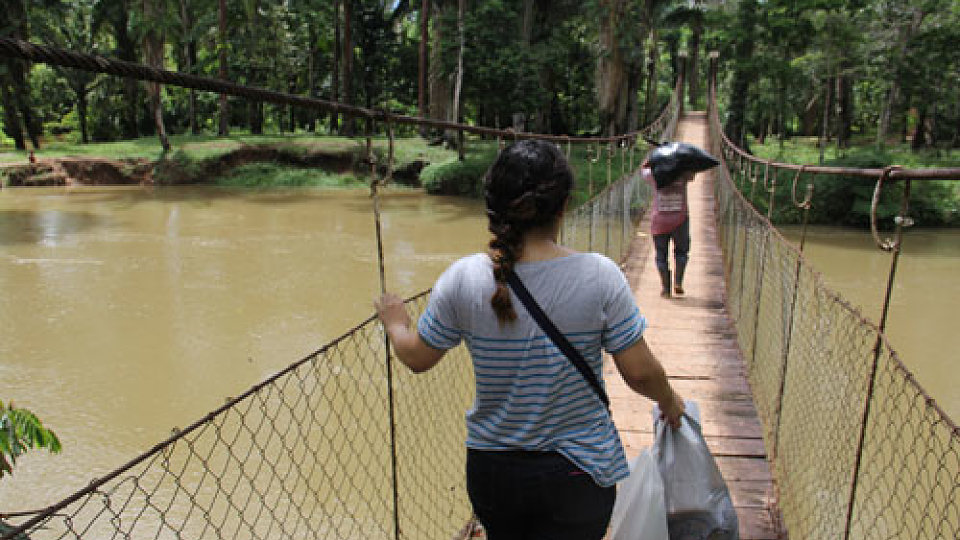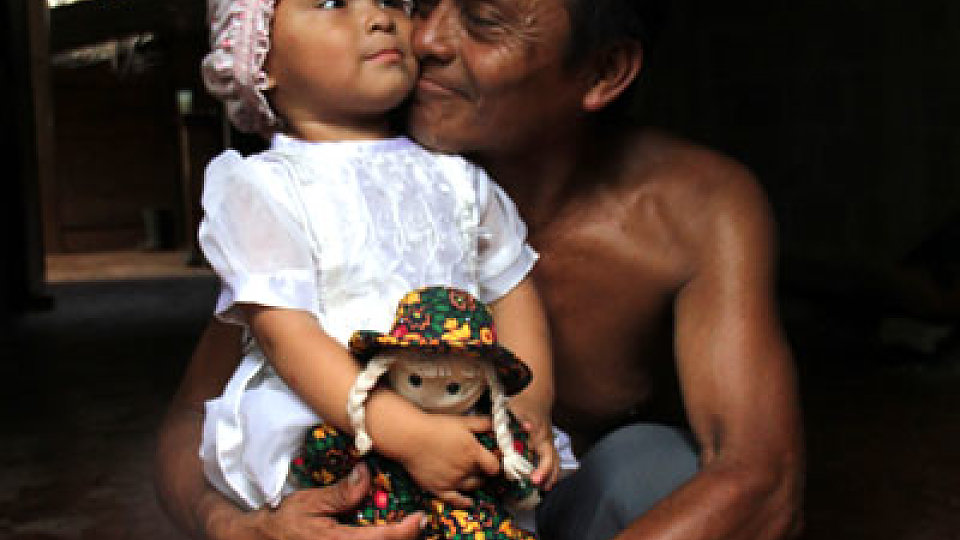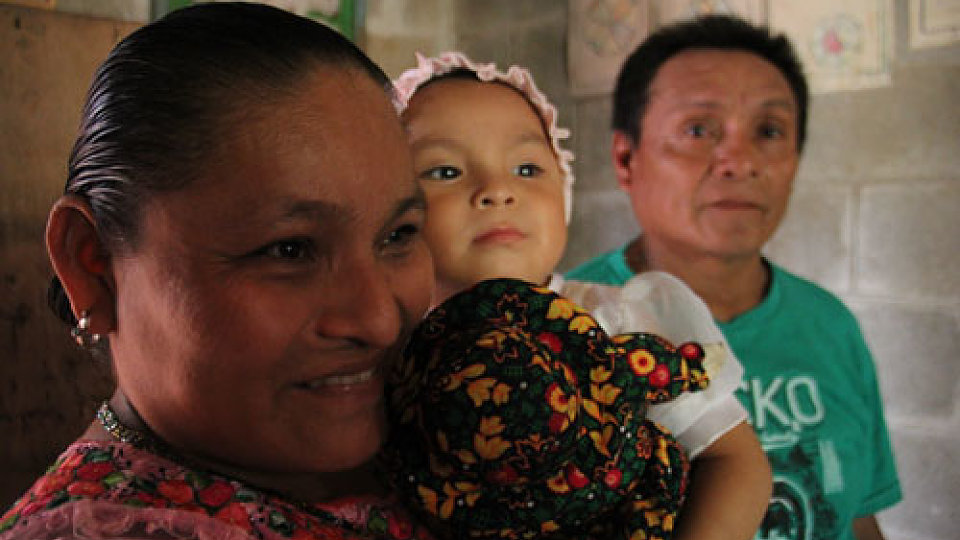Lost and found: Baby Sara's joyful return home
As a caseworker for Semillas de Esperanza, Dina Tomás logs a lot of hours the old-fashioned way: on foot. Due to incomplete files, a backlog of cases and a rural setting, Tomás’ casework in Guatemala involves a lot of face-to-face investigation.
Many of her cases involve the large populations of indigenous groups in remote villages with no vehicular access in the Coban District of Guatemala. She points to her hiking boots, noting, “These are my car.”
Semillas de Esperanza (“Seeds of Hope”) is a project of Buckner International in collaboration with Guatemala’s child welfare department and Buckner Guatemala. It’s the outcome of a nearly $1 million grant awarded in 2013 to Buckner by the U.S. Agency for International Development (USAID) to develop programs in Guatemala that will provide permanent family solutions for orphans and vulnerable children.
Caseworkers like Tomás are tasked with a myriad of options to provide permanency solutions for children ages birth-3, including reuniting children with their families, placing them in foster care, or making other permanency plans.
Today, she is in the Kekchi Maya village of San José Pacayal checking up on 2-year-old Sara*, who she helped reunite with her parents following a bizarre story involving a hospital mix-up, a cover-up and a search for her family.
To get to the village, Tomás had to drive on a national highway for six hours before turning off on a dirt road that would take her to a pedestrian suspension bridge and lead her to the trail to take her to the mountainside village where Sara lives.
Sara was born in April 2012 to Juana Pap* and her husband, Bartolo Díaz*, at a health center in Chahal. Díaz is an agricultural worker. Pap is a homemaker who is often found in the kitchen. Sara was born underweight – 3 lbs. – and diagnosed with malnutrition while her mother was diagnosed with anemia at the hospital.
Both were taken to another hospital for treatment, but while Pap was discharged, baby Sara remained for further treatment. Needing specialized care, Sara was transferred to a third hospital, this time in Cóban.
Word got back to Díaz that his daughter had been transferred, but then the story took a bizarre hairpin turn.
“When he found out that his daughter had been referred to the (third hospital), he visited several times,” Tomás said. “He brought diapers, baby powder and clothes for his daughter. However, they wouldn’t let him see her. He returned and later he called, but still they didn’t let him see her. After that, he kept calling because he had the number of the hospital and they didn’t give him any information on the child.”
Tomás explained the couple couldn’t visit the hospital often because of the family’s remote location.
“The hospital was six hours away and there is no transportation,” she said. “So it was difficult for them. They rarely went to Cóban, but they kept calling and they still did not give them any information.”
Díaz recalls the despair he felt at the time: “The doctor wouldn’t show me Sara. I went back, sad.”
Díaz, who works at a palm farm, said he finally gave up because he couldn’t afford to continue the search in Cóban. “I was working at La Palmera. If I missed one day, I would be fired.”
Tomás said the last time the family called the hospital in Chahal, offi cials there told them “that the child had passed away. So, they gave up and stopped calling the hospital because, according to them, she had died.”
With no family visiting the infant in the hospital and very little information available on her, the child was declared adoptable, Tomás said. Seeds of Hope intervened in November 2013, to determine Sara’s identity and family connections. Tomás investigated at all three hospitals, working backwards to determine her identity.
By April 2014, Tomás and Seeds of Hope continued the investigation, finally working their way to the initial birth hospital in Chahal. “We were able to locate the address or the possible address of the mother. We shared this information on Radio Bendición in Chahal, to try to reach the girl’s family.”
Following leads they’d gotten from the hospital, Tomás tracked down the parents at San José Pacayal, “asking one neighbor after another if they knew Mr. Bartolo and Ms. Juana.”
They did, guiding her to the couple and their large extended family, who were stunned and overjoyed when Tomás brought them the news their youngest daughter was alive. The visits continued with home studies, hearings and, finally, a reuniting with Sara’s large extended family.
Díaz recalled his and his wife’s feelings with Tomás the moment when she told him his daughter was alive “Ah yes, I felt so calm when you came and told me.”
For Tomás, the successful, though difficult, search, was a labor of love for God.
“That’s what I love about my job, is that I’m serving God,” she said. “God is my partner. He is my boss. He sends me to work for the people who need it. I am just an instrument and I have weaknesses, but I want to strengthen them and keep supporting these people.”
It’s a sentiment Díaz emphasized to her. “Many thanks to God. God’s blessings on you.”
*Their names have been changed to protect their identity.








Add a Comment